Floored Documentary Transcription:
Floored Documentary.
I remember witnessing a chaotic scene where paper was being thrown in the air. It was a spectacle that fascinated me, something I had never seen before. Despite the apparent mayhem, there was an underlying order and purpose to it. This was the world of trading, specifically in Chicago, where the biggest pits in the world existed. The Chicago Mercantile Exchange, the Board of Trade, the Board Option Exchange, and the Chicago Stock Exchange were all located in this city, making it the trading capital of the world.
The trading floor was a physical and competitive environment, unlike anything else. While the business was governed by integrity and mutual respect, the pit itself operated on different rules. It was a place where traders would spit, step on each other's feet, and engage in physical altercations without any repercussions. Despite the chaos, there was a strange silence amidst the noise.
The physicality of the pit was extreme. Traders would sometimes lift their feet off the ground before the opening bell, as the crowd was tightly packed and constantly in motion. The adrenaline rush and the thrill of trading were unparalleled. It was a job that deviated from the norm, with no fixed salary, health plans, or 401(k)s. Success or failure depended solely on one's ability to navigate the market.
Chicago's history as a trading hub dated back to the 19th century when it emerged as a transportation and trade center. The convergence of trade routes by rail and water led to the establishment of the Chicago Board of Trade in 1848. Futures trading became popular as it offered a way for buyers and sellers to manage the risks associated with unpredictable price fluctuations. By agreeing on a price ahead of time through futures contracts, they could protect themselves from paying too much or selling for too little.
The traders on the exchange floor were divided into different groups based on their backgrounds and affiliations. There were South siders, North siders, Jewish traders, Irish traders, Italian traders, and more. Despite the diversity, what mattered most was one's ability to seize opportunities and make money. Education was not a prerequisite for success in this field. Uneducated traders could still thrive and earn significant profits.
Trading in the pit was a high-stakes game where fortunes could be made or lost within minutes. Traders had to possess bravery, nerve, and a competitive spirit. Some were brilliant, others eccentric, nerdy, or outright jerks. The interview process to become a member of the Board of Trade was not based on advertisements but rather on trust and personal connections.
The allure of trading attracted individuals from various backgrounds. Sports enthusiasts saw parallels between trading and the thrill of playing a game, where the adrenaline rush was intoxicating. Once you tasted the potential for massive earnings, returning to the corporate world seemed undesirable. The absence of a boss to answer to and the autonomy of trading made it difficult to envision working for a firm.
The lifestyle of traders in Chicago was marked by excess and indulgence. They earned vast sums of money and often spent it lavishly. Young traders made more money than they knew what to do with and engaged in various vices and extravagant activities. Drinking, partying, and lavish trips were common among them.
Local traders played a crucial role in the exchange's growth. They operated as intermediaries, both buying and selling, providing liquidity to the market. The open outcry system was used, where the highest bidder and the lowest seller determined the price of a commodity. Traders would shout their bids and offers, making trades in a fast-paced environment. They would write down the details on cards and hand them to their clerks for processing.
There was a misconception that traders manipulated prices, but in reality, supply and demand drove market fluctuations. Traders acted as intermediaries, catching small price differences and facilitating transactions. It was a fast-paced and complex environment, where confidence and arrogance could quickly turn into fear and difficulty.
The financial rewards of trading were significant, but the risks were equally substantial. Traders risked their own money on a daily basis, often trading hundreds or even thousands of contracts in a single day. The potential for huge profits existed, but losses could be equally catastrophic. Some traders risked everything they had, while others were more conservative. The successful ones knew when to make money and when to step back.
The life of a trader was filled with highs and lows. Success was fleeting, and the profession was unforgiving. One's reputation was built on their last trade, and losing money could result in humiliation. The pressure to perform was immense, and traders faced constant scrutiny from their peers. It was a cutthroat environment, where trust was scarce, and friendships were rare.
The trading floor was not just a place of business but also a microcosm of society. Traders came from diverse backgrounds and held different personalities. They interacted with each other, formed cliques, and engaged in rivalries. The dynamic nature of the pit meant that relationships could change quickly, and conflicts were not uncommon.
Trading was not for the faint of heart. It required resilience, determination, and a willingness to take risks. Many traders had no formal education beyond high school, but their street smarts and ability to adapt were crucial for survival. They learned by observing the most successful traders and emulating their strategies.
The financial success of traders was staggering. Some traders, even at a young age, earned more than professionals with advanced degrees. The money they made allowed them to live extravagant lifestyles and indulge in various pleasures. However, the pressure to maintain their success was ever-present, as the market was unforgiving and unpredictable.
The life of a trader was not without its challenges and setbacks. Losing large sums of money was a real possibility, and some traders faced financial ruin. They had to cope with the emotional toll of failure and the uncertainty of their future. Despite the risks and hardships, the allure of trading kept them coming back, as the potential rewards were too tempting to resist.
Trading was both a game and a business. It required skill, knowledge, and a deep understanding of market dynamics. Traders had to constantly adapt to changing market conditions and make split-second decisions. The pressure to perform and the fear of losing money were constant companions.
The trading floor was an intense and competitive environment, where traders jostled for every trade. The adrenaline rush of successful trades was addictive, but it could also lead to recklessness. Some traders became consumed by the game, neglecting other aspects of their lives.
The trading profession attracted individuals with a certain mindset. It required a combination of street smarts and business acumen. Traders had to navigate a world where trust was scarce and reputation was everything. They had to earn the trust of their clients and prove their ability to handle large sums of money.
Trading was a solitary pursuit. Each trader was responsible for their own success or failure. They had to rely on their instincts, knowledge, and experience to make the right decisions. While trading provided financial freedom, it also demanded self-discipline and the ability to handle immense pressure.
The journey of a trader was marked by highs and lows, successes and failures. It was a constant struggle to stay ahead of the market and maintain profitability. The life of a trader was not for everyone, but for those who thrived in the chaos and uncertainty, it was a way of life—a life filled with risks, rewards, and the pursuit of financial freedom.
Clark: I think she really expected bigger and better things. Okay, I'll play that one. What's really nice is when the weather's a little warmer but it's too cold for everybody else, you get the whole course to yourself. When the split came, it was pretty devastating for me. I hugged my kids; that kind of kept me going. That was like, "Well, I can't just give up now because they're depending on me."
All I know is that when I was a little kid, I just wanted to be a dad from earliest childhood. You know, I had a lot of brothers, and I just wanted to be a father. You know how to use that? Okay, well, you just go to the bank and put it in. Punch in that number when it asks. It's gonna ask you what you want to do; you want to checking withdrawal. And then punch in the number how much.
Okay, when you put the card in, you just put the card in and you take it out. You know, just leave it there. I guess with the card. No, get cash and pay cash, alright?
When I was in preschool, yeah, he came in and spoke to our class. I remember, and he just had everyone stand up and yell as loud as they could. And that was basically what I figured he did all day. I didn't really know.
It's rough; our markets are real thin, and it was just a tough week. By the end of the week, I was asking people, everyone, it's just like, it's brutal. It's brutal. I'm on with three brokers, so I have one broker on my right, one on my left, and I'm on the headset with the third broker. Sometimes I have to flip the headset, hey, you know, can you hang on a second? I'm getting my [ ] ripped open right here. I'll get right back to you as soon as I get, you know, it's like that.
The lottery is like three hundred and twenty million dollars right now, so I bought a ticket for that. When I played lottery before, when I was married before, I always would buy the ticket thinking, you know, I really hope that I don't win because I felt like it would change my life. I just felt like it would change my life to where I wouldn't be happy. Well, I'll take the chance now, and you will have a big loss. And it's how fast did you cut your losses when you started to incur those big losses? And then hopefully you didn't have something like a drug addiction and alcohol addiction, which break traders down. And there was an incident where somebody had dropped drugs yet nobody, and everybody's looking at it and nobody would pick it up because nobody wanted to, you know, be incriminating by what was going on. Sorry, but he's sitting there looking at the drugs. Nobody would pick it up, and drugs and alcohol are that, you know, it's a horrible stereotype of this business.
I think that the high-strung type A people, you know, gravitate towards that, whether it's this industry or a sports industry or the film industry or, you know, insurance, it doesn't matter. I mean, those people, I think that's a functionality of the personality, not necessarily the industry.
You know, they hate me. It's the Merck Battlin' House. I know when I first walk in, every [ ] has a Rolex under her hand, and it's something I'm like, look at this. I could think about when I first started trading, everybody's got more than a wrist than I got in my accounts. I thought it was just like, you know, what, I could beat these guys. That's where Dad did. 99% still don't get it. When you win, you start betting less. Fat more. I mean, there's one rule that you can make the hundred thousand dollars, I let it ride if you rolled three sixes in a row, right? And the winners, right? Money gets the super chance. I'm talking, I thought the Playmate, isn't that what every guy's [ ]? Okay, I think about trading, just don't lose money. When you lose money, it changes everything. You can't keep going and losing money and expect to live the same life somehow. God, I somehow, some spiritual things, as for watching. I want to buy something expensive because you made it. He made it up for minor buyer. He's starting to ease in every day. You buy a house. Can't make any money. You got expensive vacation. Hey, Suze, you say you're over the hump. I didn't have to make money every day.
I remember seeing two or three grown men on the steps of the pen at the end of a crazy day in October of '87, crying. I mean, that leaves a heck of an impression. These were the men that, you know, they could do no wrong. They had they were there first. Then there were some of the pioneers. They had built huge fortunes, and they were just the wrong way on a day where it mowed them down because of what can happen and how much money they can lose in a rapid pace. The stress level was too much for some of the guys who actually took their own lives, and these guys were married with kids. So you're talking about enormous amounts of stress, and they just couldn't look their wife in the eyes anymore or their children, and it's pretty brutal. Really brutal.
A couple months ago, I told myself, "I'm leaving the floor." I definitely want to leave the floor. My overhead is insane. My gross profit was really—it was always growing. And then just over the past year, last year, for example, over less than half of what I made the year before. 8:30 opens, like the SAC Exchange. Everything all cash opens at 8:30. The trade was at 7:30 because the unemployment number came at 7:30. And so I missed that move, which if I was on the computer, I would have had a chance of trading the number and probably been done at 8 o'clock. Instead, you know, I gotta stick around and wait for a move later in the day.
Hopefully, we're obviously going computer, whether it's tomorrow or a couple of months from now. I don't know. You could just tell by my co2. It's faded just like the floor. There isn't this floor trader presence like there was. It used to be that there were a couple thousand guys. I don't know the numbers that were trading in the pits. We had as much as 500 people in the pit when I was there in the '80s. Now there may be 50 guys in the pit. A lot of the business has gone to electronic trading. The internet became very commonplace in the '90s, and the speed at which the information was learned by all players in the marketplace became so fast, and everyone got all the information at the same time. The trading industry started to go with the information industry and went side by side with it. They wanted to be able to trade instantly when the news came out. And as I've leveled They're in control now and we're a dying breed you know it's hard to accept but you know what this is what happens so is it sad yeah it's sad it's very sad but this is the way the world works the sun comes up it goes down. I'm definitely a dinosaur definitely a dinosaur but if you listen and you pay attention you could still ride the wave even though you're a dinosaur.

























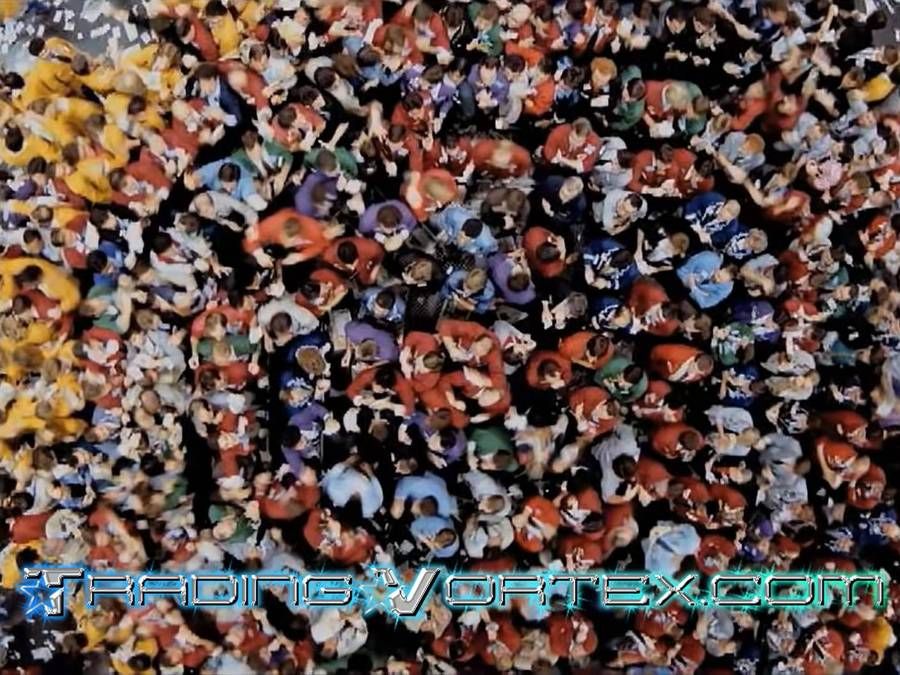

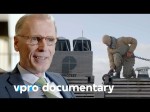
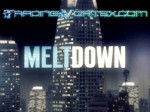

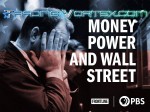
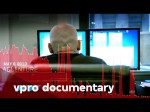
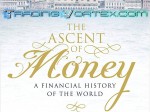
 TradingVortex.com® 2019 © All Rights Reserved.
TradingVortex.com® 2019 © All Rights Reserved.